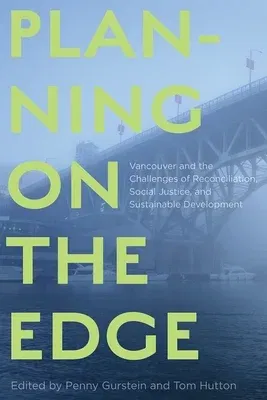Planning on the Edge: Vancouver and the Challenges of Reconciliation, Social Justice, and Sustainable DevelopmentPaperback, 19 September 2020

Qty
1
Turbo
Ships in 2 - 3 days
Only 2 left
Free Delivery
Cash on Delivery
15 Days
Free Returns
Secure Checkout

Print Length
352 pages
Language
English
Publisher
University of British Columbia Press
Date Published
19 Sep 2020
ISBN-10
0774861673
ISBN-13
9780774861670
Description
Product Details
Book Format:
Paperback
Country of Origin:
US
Date Published:
19 September 2020
Dimensions:
22.61 x
15.24 x
2.29 cm
Genre:
Urban
ISBN-10:
0774861673
ISBN-13:
9780774861670
Language:
English
Pages:
352
Publisher:
Weight:
521.63 gm